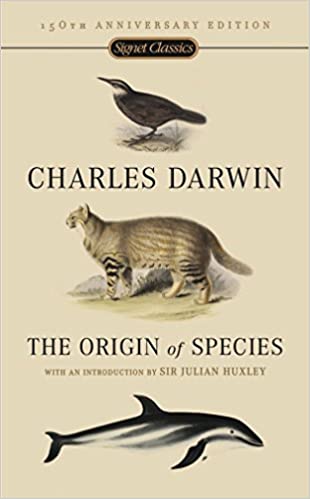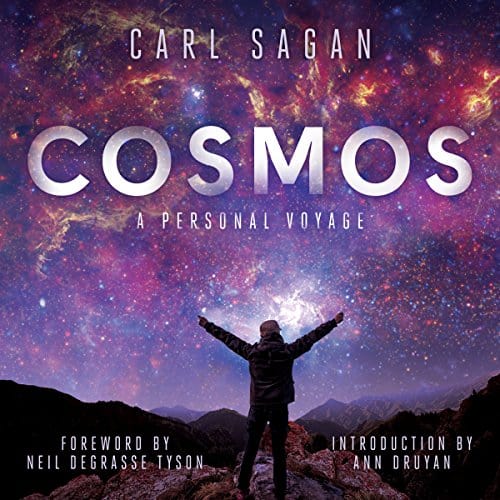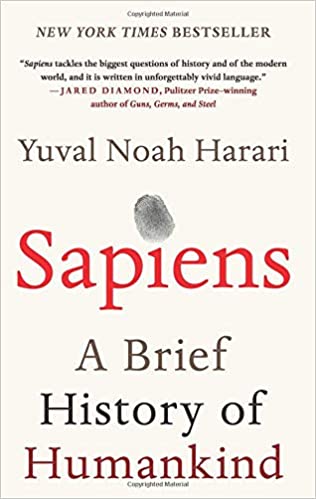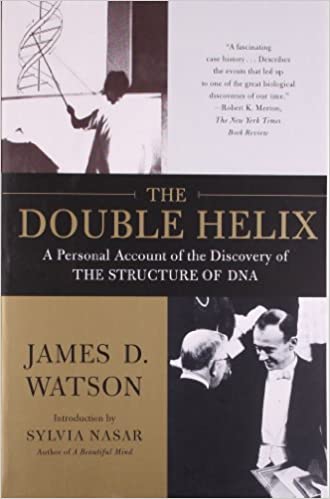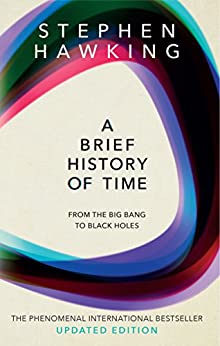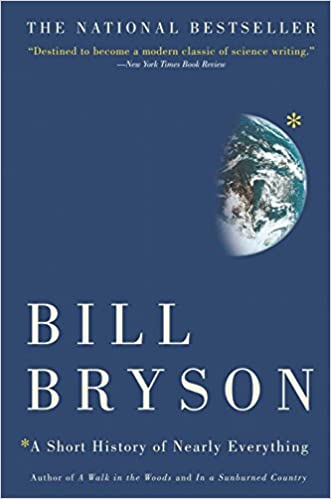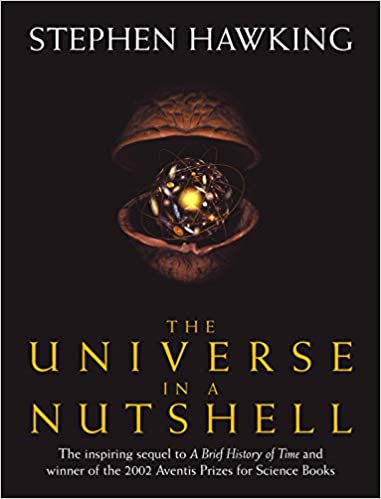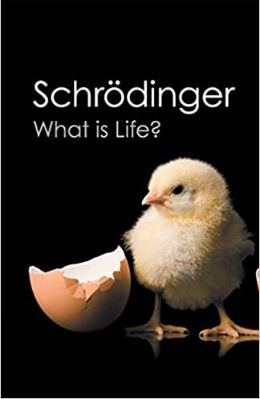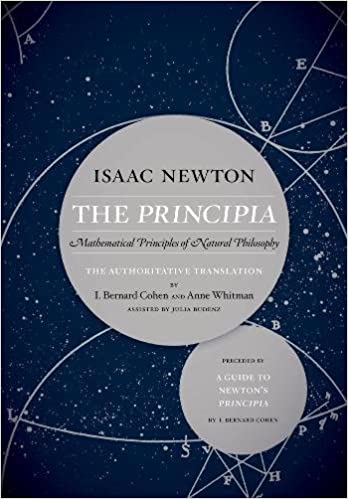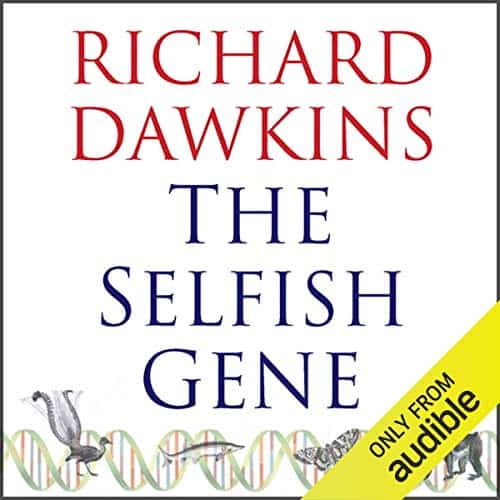Looking for the top 10 science books of all time? You have come to the right place! The never-ending exploration of the realities of everyday life and the mysteries of the Universe is fascinating and all composed into one subject, aka science.
In this world, full of fiction and dystopian books where all of the contexts are based more on someone's imagination and less on the ground reality, Science books offer relief to people looking for real knowledge.
These books are an authentic source of knowledge about every little feature of this Universe. From mysteries of space to the concept of time, from the composition of the human body to its functioning, each and everything can be explained through science.
Thanks to these books, we have a chance to understand the realities of time and life from a deeper perspective. The phenomenal concepts and studies of frivolous minds have bred these masterpieces for us to ponder upon and learn about our own existence in a detailed manner.
If you are curious about the realities of life and want to learn something new, the top 10 science books of all time are a perfect outlet for you. Let's get started!
Our Overall #1 Rated Pick
The Origin of Species was written by Charles Darwin and was published in 1859. This book is beneficial for professional biologists. The book is self-explanatory. This book discusses the evolutionary relationship among the species.
It also emphasizes the law of nature that how the strongest and fittest species live and carry on, while others fade away over time. According to many scientists, this book is serving as a bible for scientists and biologists.
The 10 Best Science Books Comparison Chart
Image | Product Name | Ranking | Price |
|---|---|---|---|
1 4.50 | |||
2 4.70 | |||
3 4.50 | |||
4 4.40 | |||
5 4.50 | |||
6 4.60 | |||
7 4.60 | |||
8 4.50 | |||
9 4.80 | |||
10 4.50 |
The 10 Best Science Books of All Time
In this section, we review the Top 10 Science Books available for amateurs and professions.
The Origin of Species was written by Charles Darwin and was published in 1859. This book is beneficial for professional biologists. The book is self-explanatory. This book discusses the evolutionary relationship among the species.
It also emphasizes the law of nature that how the strongest and fittest species live and carry on, while others fade away over time. According to many scientists, this book is serving as a bible for scientists and biologists.
This book has given a lot of researchers ground for further research. The book also provides evidence of the theories explained in it. It focuses on both botany and zoology. This book is considered the encyclopedia of science and is a great source of knowledge.
PROS
CONS
Cosmos was written by Carl Sagan and was published in 1980. If you are a space enthusiast, then Cosmos is all you need. This book explains space and its components in great detail. It tells about the evolution of space, the habitat of human beings, the formation of galaxies, and a lot more.
It summarizes most of the scientific researches and their findings of space and time. From the basic information about the planets to the details of the black hole, it explains everything perfectly. It is not simply an astronomy book. Several mathematical theories concerning space are explained in this book, such as the radius of earth & Einstein's Equation.
Everybody does not have time to read this marvelous book. But don't worry because this book comes in audio form as well. You can listen to it while doing other chores. This audiobook has a listening length of 14 hours and 31 minutes.
PROS
CONS
Sapiens: A Brief History of Humankind was written by Yuval Noah Harari and was published in 2011. This book explains the history of human beings. If you want to know facts about evolution through some genuine resource, then go for this book.
Harari is a well-known historian and has plenty of knowledge. He explains the history of humanity with the combination of history and biology that brings authenticity to his ideas. The majority of books that explain the history of humans explain it either with respect to historical perspective or biological perspective. Harari has put the idea and facts of evolution altogether and explained it with the reference of the present condition.
The author has also made us attentive about what is coming next. There are a lot of myths and religious beliefs about the history of humanity, but in this book, the author balances these myths with the facts and presents very powerful ideas. This book comes in an audiobook as well and has a listening length of 15 hours and 17 minutes.
PROS
CONS
The Double Helix is written by James D. Watson and was published in 1968. James Watson and Francis Crick brought a revolution in biochemistry with the discovery of DNA. The identification and discovery of this basic building block of life have brought innovation in human life and changed the entire perspective of life. This book explains that amazing discovery.
The author has clearly explained the research and experience of the discovery of DNA. Since its arrival, it has been the source of guidance for all the scientists. The author has explained everything regarding his ideas and the process that lead to this amazing discovery.
PROS
CONS
A Brief History of Time is written by Stephen W. Hawking and was published in 1988. This book has a detailed and unique perspective of the Cosmos and time. The thirst for the facts about space in the author made it possible to reveal some facts about the Universe.
This book presents facts about space in terms of ideas and equations. This book has changed the typical point of view about space and has a great influence on readers. It helps to know about the facts in the light of laws of modern physics.
The author has used very simple and easy to understand language in this book. He has used a simple approach so that even the general public can understand its concepts. The author has also talked about the progress in physics in the 20th century.
This book discusses various theories regarding general relativity and quantum mechanics. You do not have to worry because the way of explanation is very effective. This book is available in audiobook form as well and has a listening length of 5 hours and 46 minutes.
PROS
CONS
A Short History of Nearly Everything is written by Bill Bryson. It was published in 2003.
One of the world's most beloved and bestselling writers takes an ultimate journey into the most intriguing and intractable questions that science seeks to answer.
You will feel addicted to the book until you finish it. The writer has played with multiple topics and, in this way, has developed a rhythm. This book has explained everything within the combination of physical phenomena. He explains the principles of our existence.
The writer has opened our vision of history and survival. The writer wrote about the livelihoods of other species and also about the effect of humans. In this book, you will also find humorous content about how different scientists discovered various things and facts.
This book comes in audiobook form as well, i.e., you can read it or listen to it according to your desire. This book has a listening length of 18 hours and 13 minutes.
PROS
CONS
The Universe, in a Nutshell, is written by Stephan William Hawking and was published in the year 2001. In this book, the writer has explained various laws of physics and has used graphical illustrations as well.
The author has discussed a wide range of theories, including quantum mechanics, black holes, 11-dimensional supergravity, general relativity, and much more. This book is a perfect guide for professionals and will serve you to enhance your knowledge with some evidence.
However, the explanation is a bit difficult, and it cannot be understood by the general public unless you are a technical person with some scientific knowledge. But for people having scientific knowledge, it is a book worth reading.
The book has 224 pages and is written in the English language.
PROS
CONS
What is Life? is written by Erwin Schrodinger and was published in 1944. This book is famous for being one of the most classic books of its time. This book tells us about the various laws of molecular biology. It tells us about the genes and their role in reproduction.
Furthermore, the book also explains biological facts with the reference of physics. The writer was highly concerned with the essence and existence of life in this book. The book has two parts one is about What is Life? and has 7 chapters. The other part is Mind and Matter and consists of 6 chapters.
The author had a philosophical nature, and its effect can be seen in the book's explanation.
PROS
CONS
The Principia is written by Sir Isaac Newton and is translated by I. Bernard Cohen, Anne Whitman, and Julia Budenz. It was published in 1687. In this book, Newton used mathematical illustrations and equations to explain the laws and principles of motion, time, and force.
Newton's laws have contributed to a lot of discoveries and inventions. The book describes general laws of motion, acceleration, deceleration, and much more. It has to lead an effective path of research for scientists.
Even in this era, Newton's laws are helping us with our space vehicles. In short, this book is a complete guide in case you are concerned with the laws and principles of physics. The book has 992 pages, and the language is English.
PROS
CONS
The Selfish Gene is written by Richard Dawkins and was published in 1976. In this book, the author has explained how the interaction between species works. It tells us that whenever two organisms are genetically related, they act selflessly for each other. This is how nature works.
This book will attract general readers and is suitable for all. All the selfish actions by different genetic organisms are not because of their own will. There are responsible circumstances. This book also supports the idea of the competition of survival. The author has not explained all this on a generic basis. He has provided examples for it too. This book also comes in audiobook and has a listening length of 16 hours and 12 minutes.
PROS
CONS
Buying Guide
In today's advanced age, everyone is hooked up on their digital devices. Especially the current generation, who do not feel the need to open a book because they believe they can find all relevant information online.
In reality, there is no check and balance on the authenticity of the data being loaded online, and if you really want to learn the exact processes and mechanisms, you have to resort to books.
But there are hundreds of variations in books as well, and a lot of books focus on one or the other aspect only. So, in order to buy science-based books that fall right on your preferences, go through our buying guide to know which features to look for in great books.
About Advanced Science Books
Throughout history, we have observed that humanity has always been saved by science. We live in an age of technological advancement where artificial intelligence is no longer a myth, where devices function on voice commands, and you can control entire houses with just one simple touch.
All of this has been made possible by science and scientists. In order to learn about these unique geniuses and their discoveries, we lean towards their books; the texts they authored are the epitome of ingenuity and humanity's most significant resource as well.
Most of the books that we have reviewed in this article have been revolutionary for the world of science and have helped the generations understand our reality a little better.
Benefits of Science Books
People who prefer to read scientific books in their leisure time gain a lot of knowledge. These people have a better understanding of everyday life problems and thus can better communicate with their superiors as well as subordinates.
If you are a parent with a child who is always intrigued about the world and its processes, then these books can even act as a life savior for you. Reading about one particular idea creates attention on subjective realities and helps focus on the text in front of you.
These books ultimately bring you to a place where you can efficiently communicate with anyone from any walk of life. Science books give you a more in-depth perspective, and in doing so, they help you become more concentrated towards work and all other aspects of life.
Introductory paragraph
The quality of the context of a book is of utmost importance and determines the likelihood of the book's worldwide acceptance as well it's cost. The determinant of the quality of the text is the author, as well as the study, is presented in it, especially for science-based books.
But how do you decide in a matter of minutes if the context of the book is worth buying it for? The introductory paragraph of the book entails everything that a book is about and thus becomes the basis of its judgment for a nomad reader.
So, for you to decide which book describes the principles that you are fond of or are interested in, just give the introductory paragraph a good read, and you will know if it falls within your preferences or not.
Author
If the author of a book has a good reputation in their respective communities, the book is going to be a good read. The same goes for science books; if the author of a book is a highly respected scientist, then the book is met with more positive views.
However, we should not disregard a book just because the author does not have a history of positive study outcomes. Instead, we should judge mainly on the material they present. But if you are a newbie in the readers of this genre, you might want to start with a well-reputed scientist's view.
Illustrations
Ever since childhood, we focus on learning things with the help of pictures and diagrams. There is a reason behind the fact that we are better able to recall information that we learned with the help of pictures and diagrams.
The occipital lobe in our brain is responsible for processing images. Our prefrontal cortex and amygdaloidal complex are focused on creating memories. These structures store memories with dominant cues, so we will be able to recall them easily whenever we want.
While reading, most of the work is done by the visual field, and thus the dominant cues are saved with the help of images. That is the reason we can recall information based on pictures. Therefore, illustrations are essential because they help not just the layman but also the professionals in remembering important information.
Paper quality
For someone who reads as a hobby, a book with poor paper quality just gets downgraded no matter what the content holds. The feel of the paper matters because there are hundreds of websites where the same information can be viewed for a lower cost. People who prefer reading from the book buy them as they want to feel what they are reading.
One of the main reasons people still fall back on books is because they feel a connection to reality by holding the material in their hands. It gives the book meaning and helps it become a prized possession for some people.
A good book that is worth your hard-earned money is supposed to have knowledgeable material with good quality paper.
Cost
We understand that most of these books contain information that was comprehended and produced as a result of a series of expensive studies and so their result should be priced that way as well.
We have a list of affordable as well as authentic books for you to choose from. However, if you want to choose a book on your own, always pick the book that is priced moderately according to its context.
FAQs
Why do children need to read more nonfiction science books?
We see a lot of children, especially teenagers, with interest in fictional books and comics in our time, when they should be spending quality time with science books. The answer to this question is that these science-based books are more knowledgeable and thus have the ability to push a teenager's interest in a specific science-based field.
Can someone who is not from the field of science write a science book?
Most of the books of this genre are written by theorists, scientists, and engineers, but a variety of scientific publications also exists that have been written by other people. However, keep in mind that most of these books written by other highly qualified individuals are projections of ideas put forth by scientists themselves.
Why do most science books focus on one field only?
Science is a very tricky field, and in every aspect of it, a detailed study has to be published. Until or unless there is an elaboration on the main topic, the book does not get enough credit and recognition. These books specific to one issue are better than many because they present detailed knowledge on how that particular phenomenon that they are discussing came into existence.
Final Words
There are countless benefits of non-fictional books, especially science-based books. In this age of digitalization, our on-screen time is out of control because most of us have work based on computers. The books provide a sense of relief and control to a person's routine.
What is better than curling up a good book with a warm cup of tea at the end of a long hectic day? We say that is the perfect end to a day in this age of continuous work pressure. Moreover, these books just do not subject us to the knowledge and theories that our Universe abides by. Still, they also give us a more meaningful insight into our very own reality and how our daily life is affected by these laws of nature.
These books successfully widen our horizons and expand our minds to be able to think more freely and critically about the existence of everything around us.
Read the reviews of the top 10 science books of all time, and you will find one that tickles your fancy. Our detailed buying guide will help you with choosing books from all over the globe.
Happy Reading, Folks!

